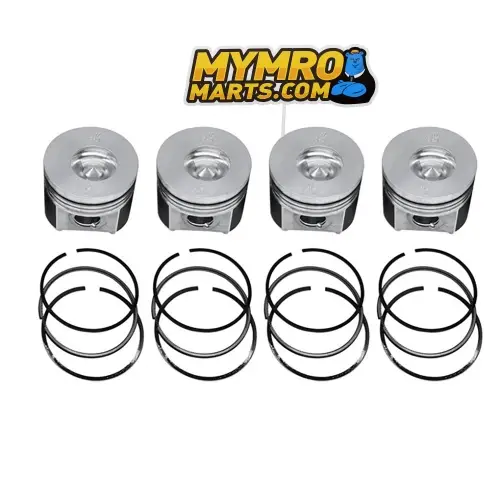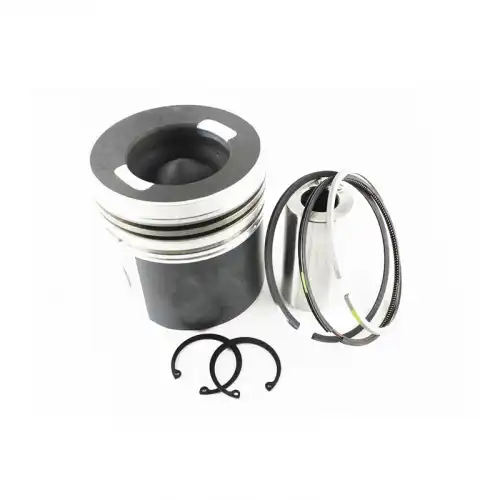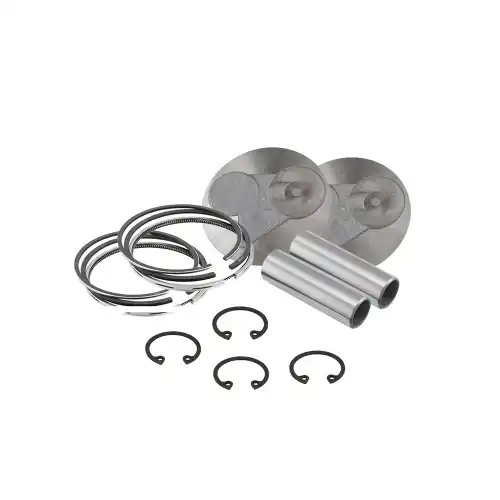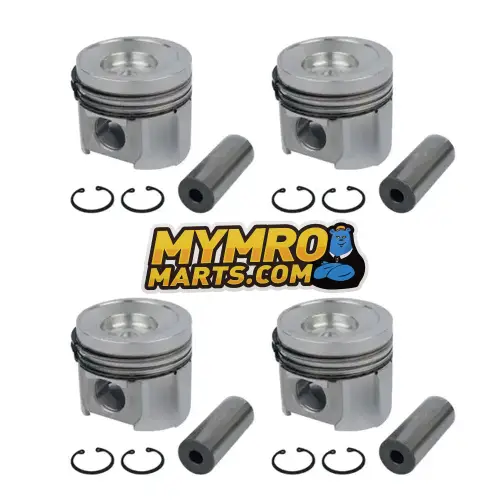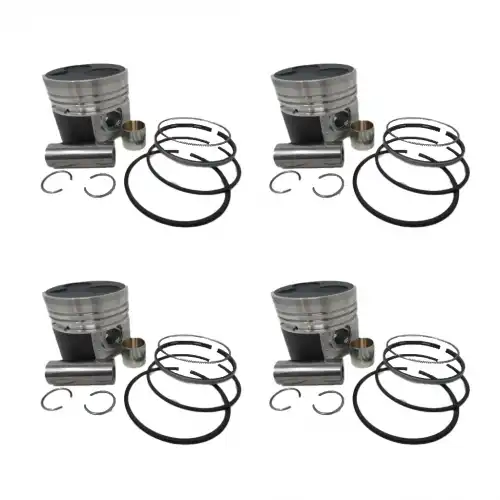Are Rotary Engines Louder Than Piston Engines?
In the heavy equipment world, it's also important to understand the characteristics of different types of engines. Especially when purchasing aftermarket engine piston components, many equipment owners wonder: are rotor engines louder than piston engines? Today, we'll explore this question.
How Do Rotor Engines and Piston Engines Work?
Let's first quickly review the operation of both engines. Internal combustion engines include both piston and rotor engines. Both depend on burning fuel to produce energy. As the name implies, rotor engines work without the usual piston's reciprocating motion, instead using a spinning rotor. Because of their design, rotor engines can run with noise and vibration levels that are different from those of piston engines.
Piston engines, on the other hand, work by moving a piston up and down inside a cylinder. Each explosion cycle of the engine generates a certain amount of noise. Comparatively, the rotor engine is smoother in operation and produces a different noise pattern. So the answer to are rotary engines louder than piston engines is obvious.
Why Are Rotor Engines Louder?
There are several reasons why rotor engines are known to be louder than piston engines. The most fundamental factor is that rotor engines are characterized by high RPMs. Rotor engines typically rev much higher than piston engines. Rotor engines produce more high-pitched noise from the engine itself and the exhaust system. This makes it more difficult for heavy equipment owners to tolerate than the low-pitched noise produced by rotor engines.
Another reason is that rotor engines have larger exhaust ports. This large exhaust port produces a louder exhaust sound. Piston engine systems usually have better sound deadening systems that can stop the noise somewhat.
Sound Perception and Impact
Noise is a technical issue in heavy equipment. It can also affect operator comfort. If you are using equipment fitted with a rotor engine, you will notice that the sound characteristics of its operation are very different from those of a piston engine. This high-frequency sound can be much harsher.
Rotor engines are usually suitable for automotive vehicle drivers who love that aggressive sound. Piston engines are the dominant choice in heavy equipment. Additionally, there is an active aftermarket for piston assemblies, providing heavy equipment owners with replacement parts for Bobcat, CAT Caterpillar, Cummins, Hitachi, John Deere, Kubota, Komatsu, Perkins, and other brands.
Implications for the Aftermarket
For heavy equipment owners, understanding engine noise characteristics is key to making a choice. If you are considering an engine replacement for your equipment, consider the benefits of piston engines. If you choose to stay with a piston engine, you can find a wide range of quality piston components in the aftermarket. You won't have to worry about subsequent replacement parts.
Conclusion
Overall, it is a fact that rotor engines are louder than piston engines. Each engine has its unique characteristics and scenarios for which it is suited. The rotor engine's exhaust system design and high rpm dictate that it will be louder. For heavy equipment workers, a quieter work environment is better. The traditional piston engine design is more in line with the need for low noise. In the process, choosing reliable quality aftermarket engine piston assemblies can help you optimize the performance of your equipment.
 Track Your Order
Track Your Order




